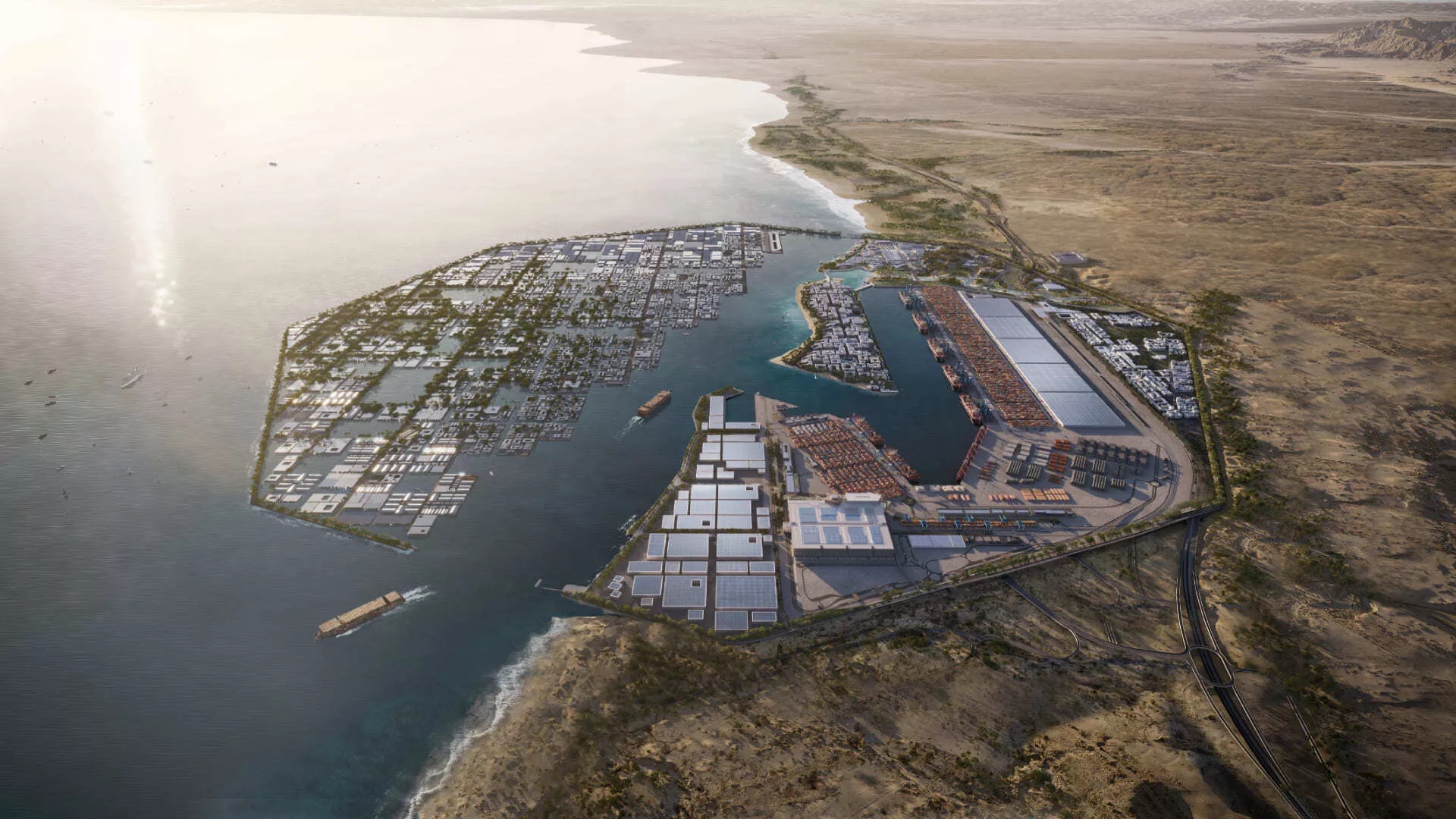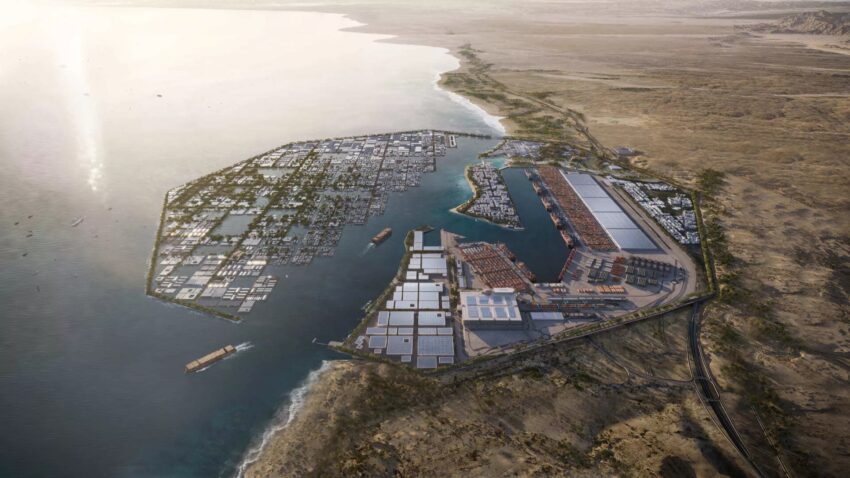
Europe’s building business is globally revered for its engineering excellence and sustainability management, but it surely usually struggles to transform innovation into scalable business success.
Applied sciences like modular timber-hybrid programs, AI-powered analytics, and digital prefabrication platforms exist throughout the continent, however they have a tendency to get caught in regional pilots and fragmented deployment.
Regulatory complexity, risk-averse procurement, and lengthy gross sales cycles hinder the take-up of completely wise improvements.
Company spinoffs and joint ventures promise the world however, in Europe, they’re usually undercapitalised and, because of this, ignored.
It’s completely different in Saudi Arabia
We’ve heard in regards to the giga tasks like Neom, the Purple Sea Mission, and Diriyah Gate as the dominion spends tons of of billions in an effort to create a model new, trendy financial system from scratch.
We hear much less about how hungry Saudi programme leaders are for modern approaches to constructing the brand new cities and infrastructure.
They’re longing for environment friendly, digitised, and sustainable options, and European innovators are discovering a heat welcome there.
Austria’s Rhomberg Group spun out Cree GmbH to commercialise its hybrid timber modular building know-how. Whereas technically superior and environmentally sound, regulatory fragmentation and lengthy, cautious procurement processes put a drag on its European growth.
In 2023, Portuguese contractor Casais grew to become a shareholder in Cree, as reported by industrial journal Stable, and noticed the chance to scale the know-how past Europe.
This yr, Casais partnered with Saudi Arabia’s Nahaz Funding Group to kind Casais Entirez, a three way partnership delivering modular, sustainable buildings aligned with Imaginative and prescient 2030 priorities, as Portuguese journal Eco reported.
It’s early days, but it surely demonstrates how a European innovation can get the type of head begin that may be so elusive at residence when embedded in a Saudi JV construction.
Final December, as GCR reported, the Neom Funding Fund took a stake in Denmark’s GMT Robotics to automate rebar cage meeting, one of many hardest and most bodily damaging jobs in building.
GMT’s robotic programs allow high-precision, off-site fabrication, decreasing on-site labour by as much as 90% and enhancing security and pace. Saudi Arabia’s said objective is to set new world benchmarks in industrialised building.
The collaboration reveals that whereas European-grown know-how is seen as a nice-to-have at residence, it’s a need-to-have in Saudi Arabia.
In early 2024, German tower crane producer Wolffkran fashioned a three way partnership with Saudi Arabia’s Zamil Group, a outstanding funding holding firm, to construct a manufacturing unit in Riyadh to make a fleet of 300 cranes to assist the nationwide building bonanza.
Wolffkran was already current within the Center East, however this JV widened its footprint and scaled operations on the again of Saudi Arabia’s ambition to localise manufacturing.
Why spinoffs and JVs work
These cases present what occurs when European innovation meets Saudi ambition.
When thoughtfully executed, spinoffs and JVs supply operational autonomy with company backing, shared funding and threat, and long-term scalability.
For pissed off European companies, they carry readability and business momentum that’s lacking at residence.
If this pursuits you, my recommendation is to replicate on Saudi priorities – off-site building, housing, automation, and digital infrastructure – and tailor your pondering to them.
Notice that spinoffs and JVs ought to lead their very own buyer relationships, market methods, and organisational construction. Mum or dad companies should assist with out dominating.
Culturally, partnerships should steadiness startup agility with company self-discipline, and be capable to mix worldwide experience with native information. Alignment of values and execution timelines is crucial.
Saudi Arabia is not only constructing cities, it’s redefining how infrastructure is delivered. European building innovators ought to see it as a spot to check, validate, and scale.
- Vladimir Vlahovic is a civil engineer and the founding father of Solventry GmbH, a Vienna-based consultancy specialising in constructing building spinoffs and joint ventures







